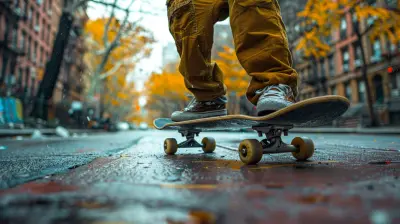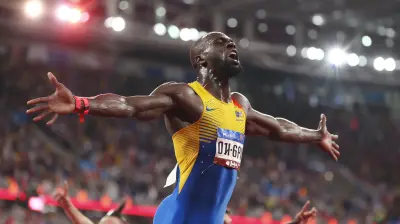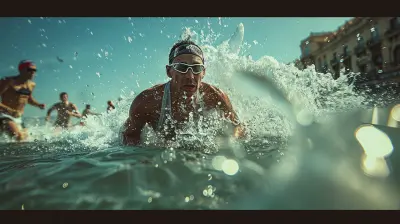The Psychology of Skateboarding: Building Mental Toughness
4 August 2025
Skateboarding isn’t just about tricks, flips, or flying down rails like you're weightless. It’s deeper than that—it’s a head game. At its core, skateboarding is a raw, unapologetic test of mental toughness. It's about staring fear in the face, falling flat on your back (sometimes literally), and getting the hell back up. Again. And again. And again.
Let’s be real: if you’re into skateboarding and haven’t eaten concrete a few dozen times, are you even doing it right?
But what goes on in the mind of a skater? Why does someone keep grinding away at the same trick for hours, days, or weeks? What drives them to pick themselves up, even when their body is begging them to quit?
It’s time we dig into the psychology of skateboarding and uncover how this rebellious sport forges some of the toughest minds out there.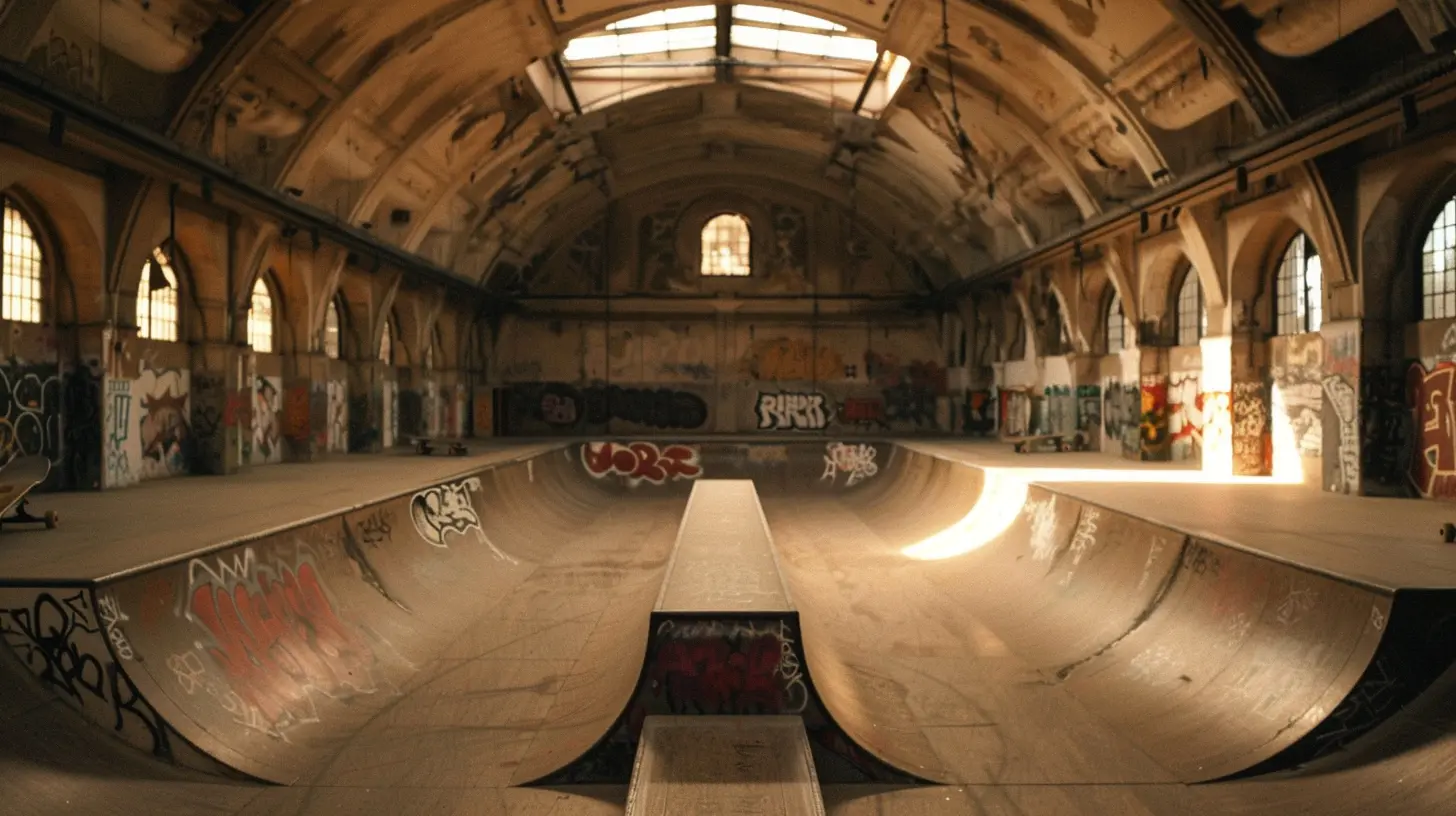
What Makes Skateboarding a Mental Game?
Unlike team sports, you’re out there mostly alone. No coach is calling the plays. There's no timeout when things go sideways. It's just you, your board, the concrete, and that voice in your head whispering, “You’re not good enough.”Skateboarding demands mental strength because:
- Failure is constant – You fail 95% of the time before landing that one perfect trick.
- Progress is slow – Mastering a trick can take weeks or months.
- Fear is real – One wrong move could mean a trip to the ER.
- Judgment looms – Skate parks can feel like stages, and no one wants to look like a fool.
The moment you step on the board, it’s a battle between your confidence and your fears. Think of your brain as a gym—every fall, every failed trick, every bruise—it’s reps. You’re training your mental muscles, whether you realize it or not.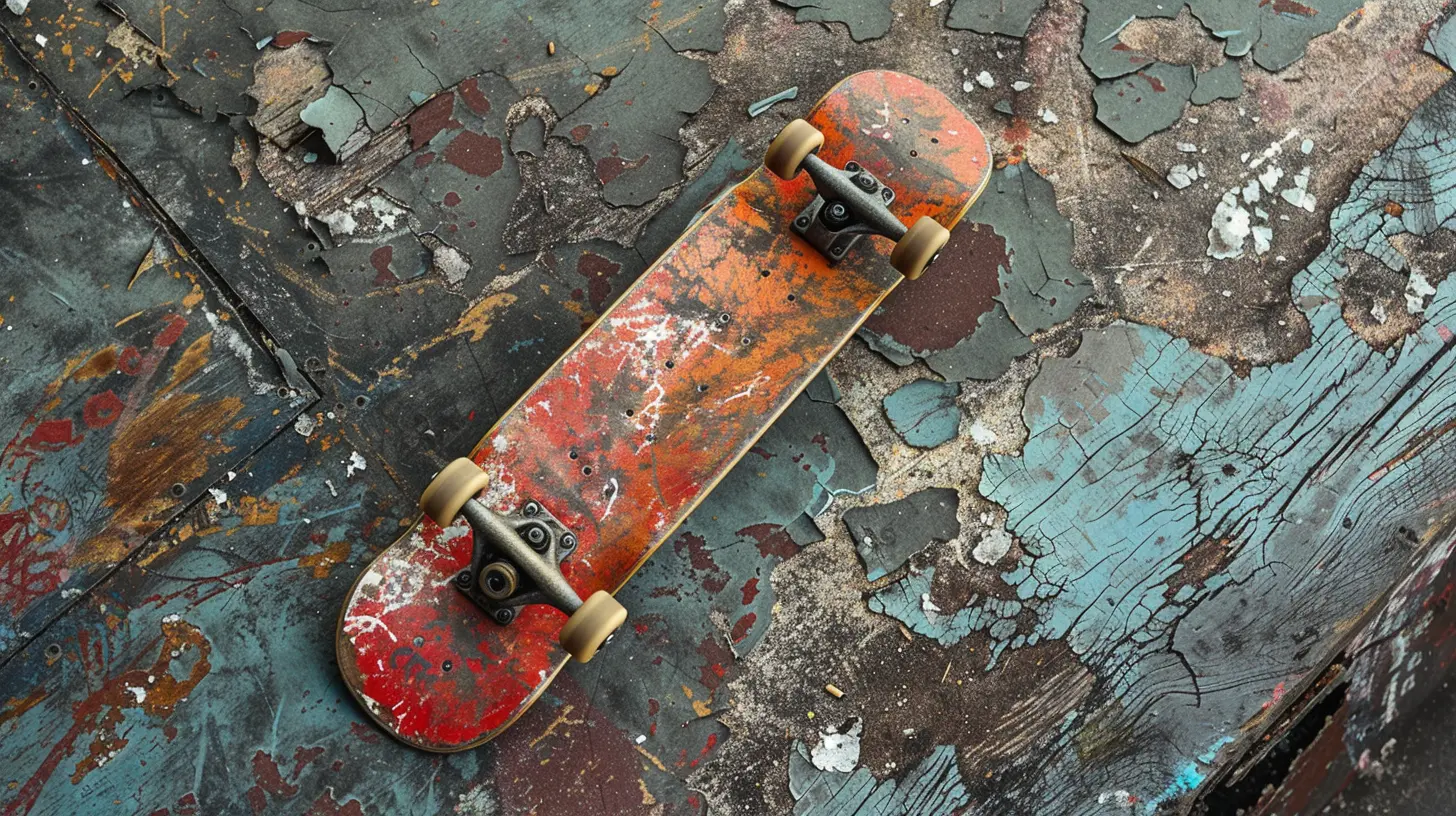
Failure Isn’t Optional—It’s Part of the Process
Let’s be blunt: you’re gonna suck before you’re good. Period.Skaters fail far more than they succeed. And that’s actually the secret sauce. Want to build mental toughness? Embrace the suck.
Every bail teaches you something. Maybe your foot was off. Maybe your timing was trash. Whatever it is, each fall is feedback. And if you have the resilience to keep pushing, that failure turns into fuel.
Ever seen someone land a kickflip after trying for days? That celebration isn't just about the trick—it's a victory over self-doubt, frustration, and everything that whispered "you're not cut out for this."
Skateboarding turns failure into fuel. That’s not just badass—it’s psychological warfare.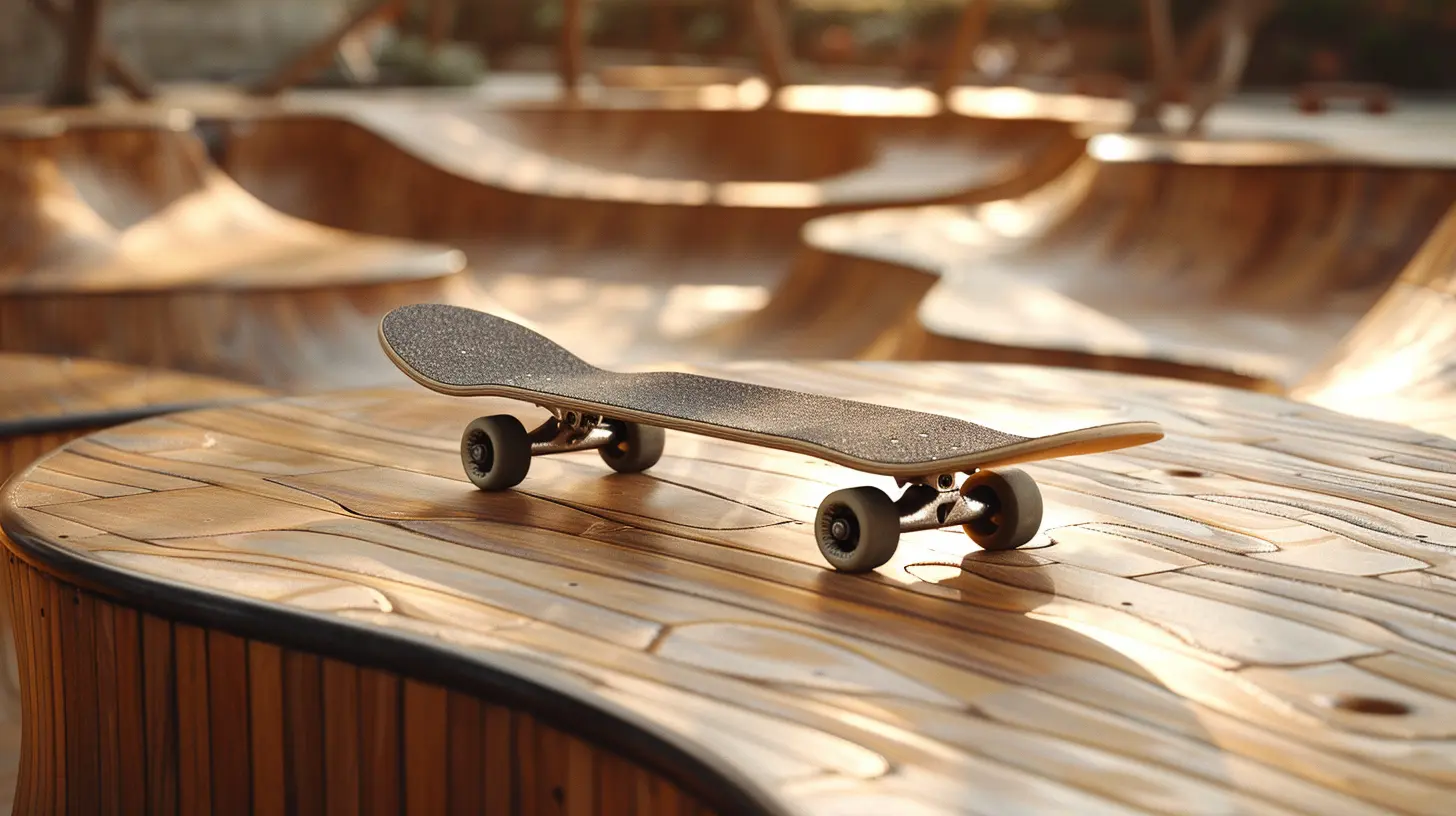
Fear: The Constant Companion You Learn to Dance With
Fear steals the spotlight in skateboarding. Every stair set, every risky grind, every launch off a ramp—it’s fear saying, “You sure about this?”But instead of eliminating fear (spoiler alert: you can’t), skaters learn to manage it.
It’s not about being fearless. It’s about being fear-tolerant.
Take the classic "commit" moment. You’re rolling up to a trick, heart pounding, palms sweating, and your brain's slamming on the brakes. That split-second decision—to commit or bail—could make or break it.
Training your brain to commit through the fear? That’s mental toughness at its finest.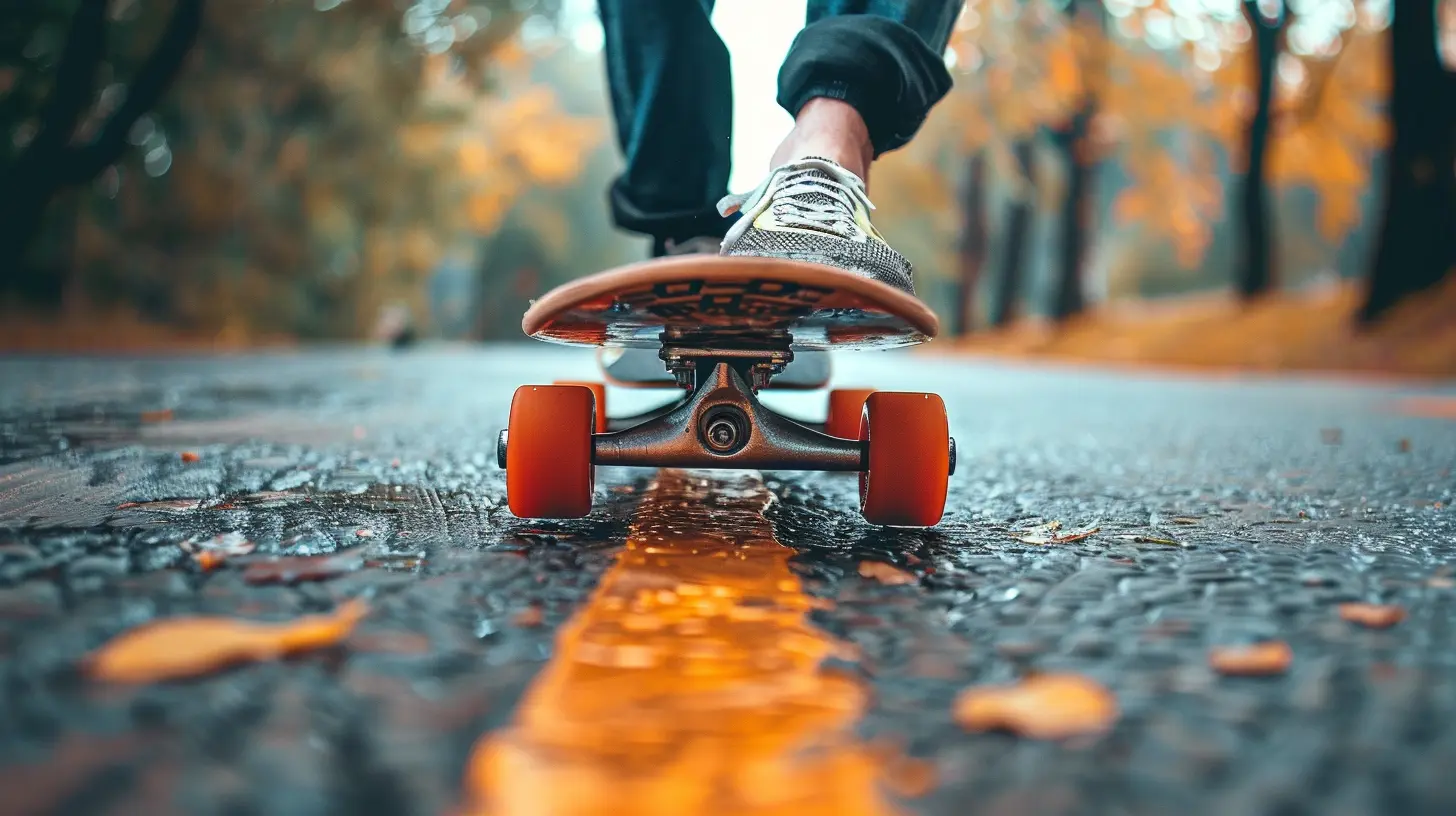
The Art of Progressing Through Pain (Yeah, It Hurts)
Push your limits, and pain will visit. It's part of the unspoken agreement you sign when you pick up a board. But here's what separates skaters from the average person: they’re okay with it.Not in an “I’m numb” way, but in a “this pain has purpose” kind of way.
Mental toughness is born in discomfort. And skateboarding exposes you to pain in real-time. Scrapes, bruises, sore ankles—it’s all telling your mind, “This hurts, but we’re not done.”
The body screams, but the mind whispers back, “One more try.”
The Flow State: Where Confidence Is Built
You’ve probably heard of “flow”—that magical zone where everything clicks.In skateboarding, flow feels like one smooth dance with gravity. You’re not thinking. You’re just doing. Your mind and body sync like an orchestra, and time slows down.
Getting into flow doesn’t just boost performance—it builds confidence.
It’s proof that all the mental battles, fear, and failure were worth it. You’ve earned that moment. And like a drug, it keeps you coming back. Hungry for the next fix.
And to get there? You’ve got to grind through a mountain of challenges first. Flow is the reward for mental grit.
Visualization and the Mental Rehearsal Game
Before a trick is landed on pavement, it’s landed in the mind.Watch any skater in the zone. They pause. They stare down the rail. They roll up, then roll back. Again. And again. What are they doing? Visualizing.
They're mentally rehearsing the trick. Every movement. Every flick of the foot. Every landing. It’s all playing out in their head like a movie they've watched a hundred times.
Visualization isn’t fluff—it’s mental reps. Neuroscience says it fires up the same brain regions as actually doing the trick.
Want to build mental toughness? Start by seeing the win in your mind before it happens in real life.
The Role of Self-Talk: Inner Voice = Game Changer
“What the hell was that?”“I suck.”
“I’ll never land this.”
Sound familiar? That’s bad self-talk. And it’s poison.
Your inner voice has more power than any skate trainer or tutorial video. If your mind’s talking trash, your body starts believing it.
Flip the script.
Instead of “I suck,” try “I'm getting closer.”
That slight shift in self-talk can be the difference between throwing your board across the park and sticking the landing.
Mentally tough skaters coach themselves. They don’t just let thoughts happen—they choose them. The mind is a battlefield, and your internal language is your weapon.
Skateboarding as a Mental Health Outlet
Behind all the bruises and boardsnaps, there's something deeper happening—healing.Skateboarding is therapy for a lot of folks. It offers:
- An escape – When life gets heavy, skating is your exhale.
- Focus – It forces you to be present. No time for overthinking.
- Connection – The skate community is often more accepting than any therapist’s office.
Got anxiety? Depression? Frustration you can’t shake? Skateboarding doesn’t ask questions. It just gives you space to feel alive again.
Mental toughness isn’t just about pushing through pain—it’s about finding purpose in movement.
Persistence: The Skater’s Superpower
Let’s wrap this up with a hard truth:Skaters are some of the most persistent people on the planet.
Why? Because skateboarding is a lesson in grit. When you fall a hundred times and still try once more, you’re building a mindset that doesn’t quit.
That mindset doesn’t stay at the skatepark. It follows you to school, to work, to life.
Skateboarding teaches you to show up, even when it sucks. It teaches you to keep moving, even when progress feels invisible. It teaches you that the impossible just takes longer.
And that? That’s mental toughness in its rawest, raddest form.
Final Thoughts: Mind Over Board
So, next time you see a skater eating pavement for the sixth time in a row, don’t just see the bail—see the battle. The mental war they’re waging inside. The discipline. The resilience. The inner grit.Because in skateboarding, mental toughness isn't optional. It’s essential.
You don’t just ride a skateboard. You ride your own limits, doubts, fears, and insecurities. And if you ride long enough, you don’t just get better at tricks—you get better at life.
all images in this post were generated using AI tools
Category:
SkateboardingAuthor:

Uziel Franco
Discussion
rate this article
1 comments
Nancy Young
This article raises fascinating points about the mental aspects of skateboarding! I’m curious: how do techniques for building mental toughness in skateboarding translate to other sports or life challenges? Can the lessons learned on a board apply beyond the skatepark?
August 20, 2025 at 11:02 AM

Uziel Franco
Absolutely! The mental toughness developed in skateboarding—like resilience, focus, and risk assessment—can be applied to various sports and life challenges, helping individuals face setbacks and push their limits in any endeavor.
